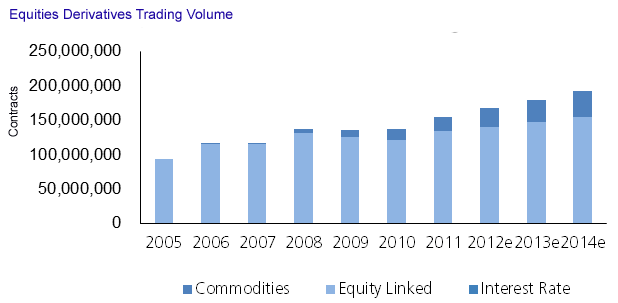Taiwanese Derivatives Market
Abstract
Taiwan’s financial services industry is facing many challenges, such as low growth in accounts and trading volumes, global competition, new technology, and investment outflow. Taiwanese regulators deregulated to drive the derivatives market, including increasing the derivatives investment quota, allowing advanced trading and overseas investment.
Competition is fierce in the Taiwanese financial market, and many financial institutions tried many methods to profit, including more investment in derivatives, high risk products, and overseas markets. The current trading value for Taiwan’s stock index futures is approximately 22% of the trading value of the spot market, lower than developed areas, and regulators believe financial transformation will drive the growth. In a new report, Taiwanese Derivatives Market, Celent examines the derivatives-related regulations, market participants, and trading platforms.
Retail and proprietary trading firms account for major trading on exchange, and banks are major players on OTC. The major trends include: hedge funds may be founded locally; Taiwanese financial institutions are expanding in overseas markets; overseas expansion drives the growth of foreign exchange and interest rate derivatives trading; and the infrastructure of Taiwan Futures Exchange is not advanced, and most of the traders are retail, so high frequency trading will not be widely adopted in the near future.

“Proprietary firms, pension funds, asset managers, and mutual funds will increase overseas derivatives trading,” says Hua Zhang, analyst with Celent’s Asian Financial Services Group and author of the report. “There are some major drivers: internationalization of risk management is more important than before; deregulation will mean that more pension funds will be allowed to invest in overseas markets and derivatives markets.”
The report describes the regulatory framework, taxation framework, market participants and trading platforms, and Celent’s recommendation to financial payment institutions.
This 24-page report contains 11 figures and 14 tables.

